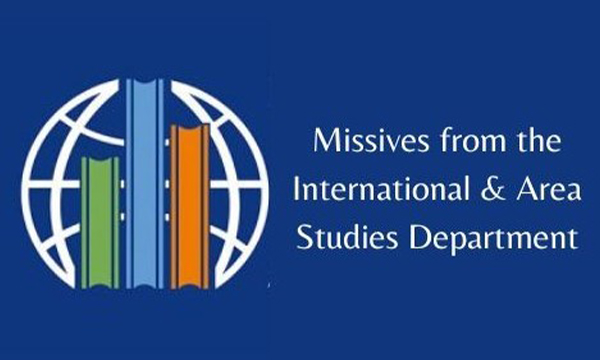The News
Piers Morgan Under Fire: The Celebrity Clash Over Journalistic Ethics
In recent years, Piers Morgan has become a lightning rod for controversy, evoking strong reactions from both supporters and critics.
Among his most vocal detractors are actor Hugh Grant and Prince Harry, both of whom have openly criticized Morgan for what they see as unethical journalistic practices and personal attacks on their lives.
Their public condemnations have sparked extensive media coverage, igniting debates about free speech, press responsibility, and the relentless scrutiny faced by celebrities and royals in today's society.
Hugh Grant, celebrated for his charming roles in romantic comedies, has evolved into a fierce advocate for press reform.
His transformation stems from the phone hacking scandal that shook the UK media landscape.
Grant's journey from beloved actor to outspoken critic reflects a growing dissatisfaction with a media culture that often prioritizes sensationalism over integrity.
He has labeled Morgan a toxic figure, representing the worst elements of tabloid journalism, and has consistently called for accountability in the industry.
In various interviews and social media platforms, Grant has urged the public to recognize the harm that irresponsible reporting can inflict on individuals and families.
His passion for reform is deeply rooted in a desire for ethical standards in journalism, particularly in an era when sensational headlines often overshadow the truth.
Prince Harry, on the other hand, has emerged as a prominent advocate for mental health awareness, using his platform to challenge the media's invasive pursuit of personal stories from public figures.
His own experiences with the press, especially following the tragic death of his mother, Princess Diana, have fueled his commitment to seeking justice.
Harry's criticism of Morgan goes beyond personal grievances; it embodies a quest to protect others from the same invasive tactics that plagued his family.
The relationship between Grant and Harry is fascinating, as they unite against Morgan despite hailing from different backgrounds—one from the world of acting and the other from royalty.
Their alliance signifies a cultural shift where influential figures are increasingly willing to confront the media establishment.
However, this partnership has not been without controversy, as critics question the hypocrisy of two individuals who have also benefited from media attention while condemning its excesses.
As the discourse surrounding free speech and the press evolves, Morgan has pushed back against the criticisms directed at him.
He positions himself as a champion of free speech, arguing that his role as a commentator is to provoke thought and challenge societal norms.
Morgan asserts that his critiques of public figures, including Grant and Harry, are part of a broader conversation about celebrity culture and accountability.
Yet, this defense raises critical questions: Where does critique end and harassment begin?
How do we balance the right to free speech with the necessity of responsible journalism?
The tension among these three figures has intensified, particularly as social media amplifies their exchanges.
Each tweet, comment, and interview clip is scrutinized by the public, feeding into the ongoing drama.
Supporters of Grant and Harry rally behind them, empowered by their willingness to stand up against Morgan, who has often been criticized for his abrasive style.
Conversely, Morgan's fans view him as a truth-teller, unafraid to challenge the elite and speak candidly about uncomfortable issues.
The pursuit of justice by Grant and Harry has spurred broader discussions about media ethics, privacy rights, and the implications of celebrity culture.
As social media blurs the lines between personal and public life, many are questioning the role of the press in shaping narratives.
The public's increasing awareness of the power dynamics at play has led to calls for reform in how the media operates, especially regarding its treatment of those in the spotlight.
As Grant and Harry continue their campaign against Morgan, they are not just targeting one individual; they are advocating for systemic change that could redefine the relationship between celebrities and the media.
The concept of accountability takes center stage as both men leverage their platforms to shed light on press misconduct.
However, their actions invite scrutiny of their own pasts and the complexities of their public personas.
The line between heroism and hypocrisy becomes increasingly blurred as they navigate this intricate landscape.
This ongoing saga presents a compelling exploration of morality in the age of celebrity.
Meanwhile, the looming possibility of legal action against Morgan underscores their determination to seek accountability for his alleged misdeeds, reflecting their commitment to effecting change.
However, the road to justice is seldom straightforward.
Legal battles can be lengthy and resource-intensive, often taking a toll on those involved.
As public interest in the case evolves, questions arise about the sustainability of Grant and Harry's campaign.
Will their efforts yield concrete results, or will they fade into yet another chapter of celebrity feuds?
Piers Morgan's career has been punctuated by controversies that have drawn significant public scrutiny.
Notably, his critical comments about Meghan Markle following her interview with Oprah Winfrey ignited outrage, leading to widespread calls for his resignation.
Many viewed his dismissal of her mental health struggles as emblematic of the toxic nature of tabloid journalism, which often prioritizes sensationalism over empathy.
Additionally, Morgan's past as editor of the now-defunct News of the World, known for its unethical practices, has raised questions about his commitment to ethical journalism.
Critics point to his leadership role during a time of rampant misconduct, suggesting a deeper issue within the media landscape.
Moreover, allegations of fostering a hostile environment for women in the media further complicate Morgan's public image.
His interactions with female colleagues have come under fire, with accusations of belittling remarks and inappropriate behavior reinforcing the perception that he often undermines rather than constructively engages.
This track record has fueled the criticism from figures like Grant and Harry, who accuse him of hypocrisy while he claims to defend free speech.






























































